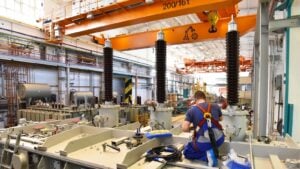Build more clean power, move faster on the minerals needed for electrification and compete hard for federal defense work. The approach is not a glossy slogan so much as a sequencing problem.
Large hydro assets have to expand or be modernized to anchor new industrial loads. The supply chain for batteries and grids needs reliable access to lithium, nickel, graphite and copper.
Defense and aerospace contracts can keep high value manufacturers busy while other sectors adjust to slower global growth.
Hydro has long defined the province’s cost advantage, and the government wants that edge to endure as data centers, battery plants and metal processors scout for low carbon electricity.
New lines take years to permit and build even with broad political support. Developers will watch for details on how interconnections are prioritized, how industrial tariffs are structured and how the province balances exports with domestic demand.
Any clarity on queue management and long term power purchase designs would be a signal that projects can move from slide deck to ground break.
On minerals, the province’s pitch is to shorten the distance from drill results to processing to finished components that is easier to say than to do.
The direction matches federal priorities and the message from Ottawa that copper is indispensable to the grid buildout and vehicle electrification.
Our reporting on what Ottawa sees in copper underscores how transmission, substations and renewables all pull on the same metal.
Quebec’s ability to back early stage projects with infrastructure, roads and power could define whether deposits become operating mines or remain stranded on maps.
Aerospace, shipbuilding and radar programs deliver steady work and export credibility when consumer demand softens.
The national conversation around fighter procurement is a reminder that industrial benefits and timelines are political as well as technical.
The recent episode in which the U.S. warns Canada about backing away from the F 35 shows how quickly supply chain assumptions can shift.
In the North, Canada’s push on surveillance and early warning includes a new radar footprint. Quebec firms with avionics, composites and systems expertise will be positioned to bid as Ottawa aligns budgets with allied commitments.
Quebec can unlock value by de risking processing at home rather than sending ore abroad, but that requires offtake contracts, funding for midstream plants and a workforce plan that is realistic about training and housing.
If Quebec can pair cheap power with streamlined approvals for mines and refiners, it can capture more of that value chain instead of watching it cross provincial borders.




















